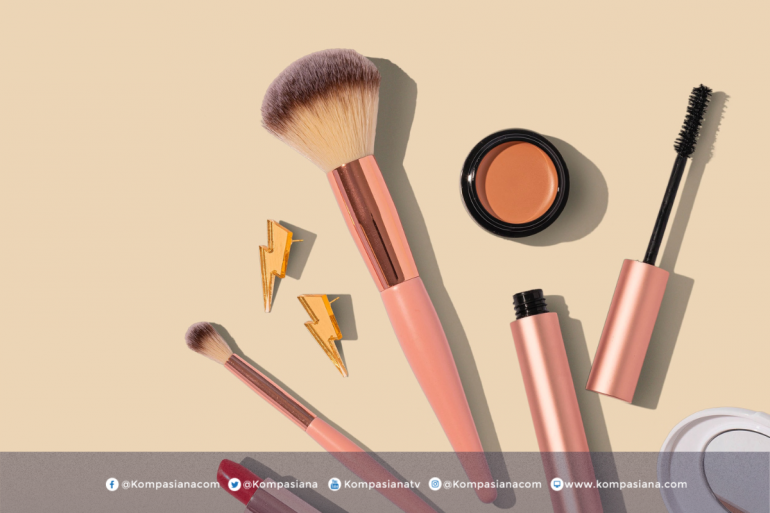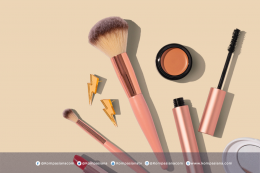For a long time, various chemicals were used to produce efficient hair products. A frequently used ingredient in conditioners is sodium lauryl sulfate (SLS). The powder is commonly used in personal hygiene products including soaps, toothpaste, and even deodorants. This tool functions as a surfactant, meaning it has the ability to disperse dust and dirt on pasture hair. In addition, sodium lauryl sulfate also functions to soften surfaces, making it easier to use and resell products.
Use of Conditioners containing SLS
Use conditioners that contain SLS, this filter works by pulling moisture and sand from the hair out. half of it forms the lauryl sulfate molecule (SLS): half hydrophobic (oil) and hydrophilic (air).
In addition to making hair, sodium lauryl sulfate can also increase the softness and flexibility of hair. This is because SLS can reduce air tension, causing the ram to become less dense after using conditioner. making SLS one of the main ingredients in the hair industry.
However, while SLS has various benefits in conditioners, some concerns have also been raised regarding its use. One of the main concerns is the potential for skin and eye irritation. SLS can cause irritation to sensitive skin, especially if used in high concentrations or if prolonged exposure occurs. Therefore, for individuals with sensitive skin or other skin concerns, it is recommended to choose conditioners that do not contain SLS or use products with lower concentrations of SLS.
The use of SLS in conditioners is based on rigorous research and testing to ensure its safety. However, people may react differently to certain ingredients, so it is important to monitor your skin reaction and consult a professional if you experience irritation or other problems after using conditioners containing SLS.
In addition, there are concerns regarding the environmental impact of SLS. SLS is found in compounds that are toxic to atmospheric environments such as rivers and oceans. When you use products containing SLS, such as shampoos and conditioners, the SLS compounds will be carried away by the current and washed into nearby rivers. Therefore, it is important for manufacturers to be careful about using SLS in their products and ensure that they are disposed of properly.
Given these concerns, some manufacturers are turning to alternative surfactant ingredients that are more environmentally friendly. For example, some conditioners now use natural ingredients such as plant extracts and essential oils instead of SLS. This allows consumers to choose products that suit their preferences and minimize their negative impact on the environment.
There are several reasons why the topic of sodium lauryl sulfate function in conditioners has become popular in beauty and hair care articles. Possible reasons are:
- Controversial in terms of safety, sodium lauryl sulfate is a chemical commonly found in personal care products, including shampoos and conditioners. There is currently debate over the safety of use, with some studies or opinions suggesting that sodium lauryl sulfate may cause skin irritation or certain health problems.
- Consumer concerns Most consumers are becoming more aware of the ingredients in the beauty products they use. Therefore, there is a higher interest in information regarding certain ingredients in products such as sodium lauryl sulfate.
- Impact on hair and skin explaining the role of sodium lauryl sulfate in conditioners can be popular as they explain how this chemical works in affecting the condition of the hair and scalp. There is great interest in knowing if this ingredient is actually beneficial or if it can actually damage the hair.
- Many consumers are looking for alternative skincare products that contain more natural ingredients or do not contain certain chemicals, such as sodium lauryl sulfate. Popular articles may discuss conditioners without these ingredients or products that use alternative ingredients that are considered more environmentally friendly or safer.
- With the growing interest and concern for certain ingredients in skincare products, such as sodium lauryl sulfate, articles that provide up-to-date and relevant information on its role and effects in conditioners tend to be popular among readers who are concerned about the conditioner care products they use.
Sodium Lauryl Sulfate (SLS) has several benefits in conditioners
Here are some of the benefits:
- Cleanses the hair, SLS acts as a surfactant in the conditioner, helping to cleanse the hair by removing excess oil and dirt on the hair.
- Forms bubbles. SLS also plays a role in producing foam in conditioners, making it easier to apply and distribute the product to the hair.
- Improves hair softness. Using SLS in your conditioner can improve the softness and flexibility of your hair. This is because sodium lauryl sulfate has the effect of lowering the surface tension of the air, making the hair softer and easier to style after using the conditioner.
Pros and cons of conditioner products containing Sodium Lauryl Sulfate
if used in reasonable doses SLS is actually quite safe and does not damage the hair. However, if the SLS content in the conditioner is too much then this chemical can remove excess protein and oil in the hair which makes the hair dry. Hair that lacks protein will make hair brittle and easily fall out. When your hair is damaged it will make you become insecure when you will curl your hair, therefore choose hair care, one of which is conditioner that has good benefits and SLS content that matches your hair.
Sodium lauryl sulfate (SLS) plays an important role in hair cleansing conditioners, but SLS has side effects, so the beauty industry is creating and developing SLS-free alternatives. It is important for consumers to do their research when buying a conditioner product. First, read the ingredients listed on the product label to choose the right conditioner for your hair and your needs.
Alternative Conditioners without SLS
Concerns about the side effects of SLS have led many products to develop chemical-free conditioners. It is an organic or natural conditioner that uses natural ingredients such as coconut oil, aloe vera, and aloe vera to moisturize and nourish hair without SLS.
Steps to use conditioner on hair correctly:
- Clean the hair first, cleanse the hair and scalp with shampoo before applying conditioner. Rinse thoroughly so that no shampoo remains.
- Pour a coin-sized amount of conditioner into the palm of your hand. This amount can be adjusted depending on the length and thickness of your hair. If your hair is long or thick, you may need to use more.
- Massage your head and apply the conditioner from ends to roots. Make sure the conditioner is spread evenly and avoid the scalp area to reduce the risk of soft or oily hair.
- Let it sit for a while. Hair conditioner takes time to take effect. Read the label instructions to find out how long the conditioner will stay in your hair. It usually takes about 3-7 minutes for the conditioner to absorb into your hair.
- Rinse conditioner out of hair with cold or warm water. Cold water can help close the hair cuticle, making hair shinier and more manageable.
- Dry the hair by patting it lightly with a towel. Avoid rubbing the hair harshly as this can damage the hair fibers.
conditioner as needed. Consider choosing a conditioner that suits your hair type. There are conditioners specifically designed for dry, oily, colored, curly, straight and more. For best results, customize hair care products to your hair needs.
The point is that the use of SLS in hair conditioners can provide benefits by cleaning the hair effectively. However, there are also side effects that must be taken into account. For individuals who are sensitive to chemicals, switching to SLS-free alternatives may be an option. SLS when used in appropriate doses is actually quite safe and will not damage the hair. However, if the SLS content of the conditioner is too high, it can strip the hair of excess protein and oil, causing dry hair. Protein-deprived hair becomes brittle and falls out easily. If your hair is damaged, you will feel less confident in wearing it. Therefore, choose hair care products, including conditioners, that work well and contain SLS that is suitable for your hair.
Follow Instagram @kompasianacom juga Tiktok @kompasiana biar nggak ketinggalan event seru komunitas dan tips dapat cuan dari Kompasiana. Baca juga cerita inspiratif langsung dari smartphone kamu dengan bergabung di WhatsApp Channel Kompasiana di SINI







